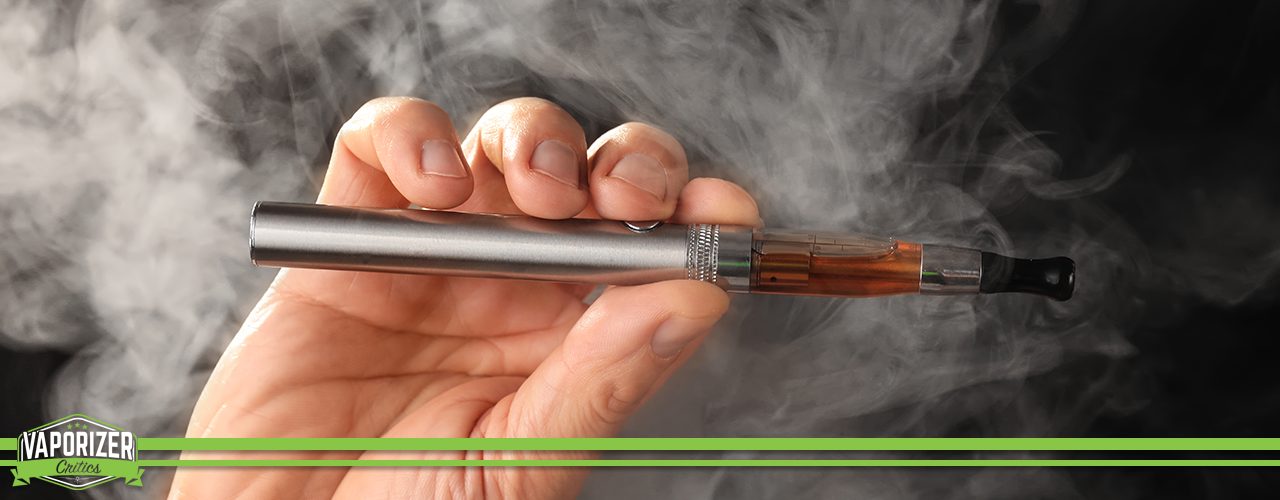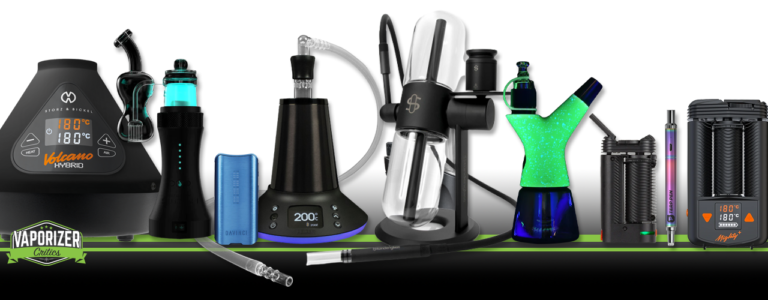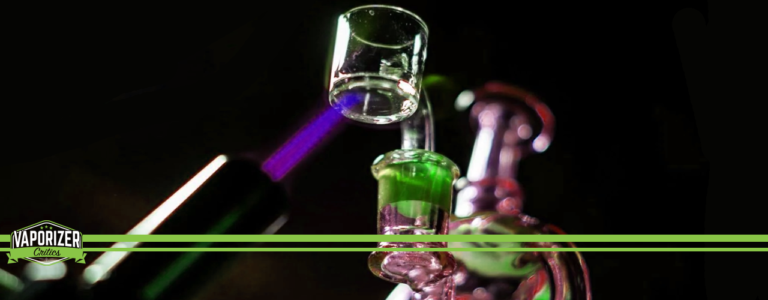As vaping continues to gain popularity, it’s more important than ever to understand the age regulations surrounding its use. To ensure responsible use and avoid penalties, it’s important to know how old you have to be to buy a vape, as these rules vary widely by country. In this blog post, we’ll explore the different age regulations for vaping across the globe and discuss the classification of vaping products, as well as the penalties and enforcement of these laws.
Short Summary
- Understanding vaping regulations is essential for users and retailers worldwide, with the legal age to purchase vape products ranging from 16-21.
- Vape devices may contain e-liquids, nicotine, cannabis, or CBD. Local regulations should be followed.
- Penalties are enforced to protect minors from purchasing vaping products and promote responsible use of nicotine products.
Understanding Vaping Age Regulations Worldwide
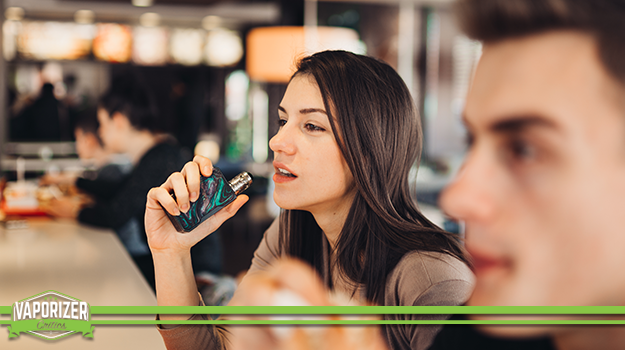
Vaping age regulations differ from country to country, making it essential for both users and retailers to be aware of the legal age requirements in their area. The rationale behind setting different age limits often lies in the desire to limit access to tobacco or vaping products for adolescents, protecting them from potential adverse health effects.
In the United States former president Trump voted to raise the legal age for purchasing and using vape products is 21. This also appears to be affecting new restrictive legislation in other communities around the world as they look to the US example.
However, other countries may have different age requirements, such as Canada, where the legal age is set at 19. European countries range from 16 to 20 years old in their legal vaping age.
Furthermore, the United Kingdom, Asia-Pacific, Latin American, and African countries all have their own respective laws governing the legal age for vaping.
United States Vaping Age Laws
In the United States, the federal Tobacco 21 law sets the minimum age for purchasing vape products at 21 years old. This law was passed with the intention of deterring teenage vaping and protecting young people from the potential risks associated with nicotine use.
However, some states, such as Alabama, Hawaii, Oklahoma, Massachusetts, South Dakota, Tennessee, Vermont, Washington, and Wyoming, have established their own vaping age requirements. These state-specific laws can be more stringent than the federal Tobacco 21 law, resulting in varying penalties for retailers who sell to underage buyers.
For instance, retailers may face fines, license revocation or suspension, and even criminal charges for selling tobacco products, including vaping devices, to individuals under the legal age. Here is a full list of vaping bans in the United States.
The Tobacco 21 law in the United States doesn’t impose penalties on individuals under the age of 21 for buying, using, or possessing vaping products. Instead, the law focuses on sanctioning retailers who sell these devices and accessories to underage customers. Prior local laws that allowed specific groups, such as military personnel, to vape at a younger age are no longer valid due to this modification in federal tobacco legislation.
Canada Vaping Age Laws
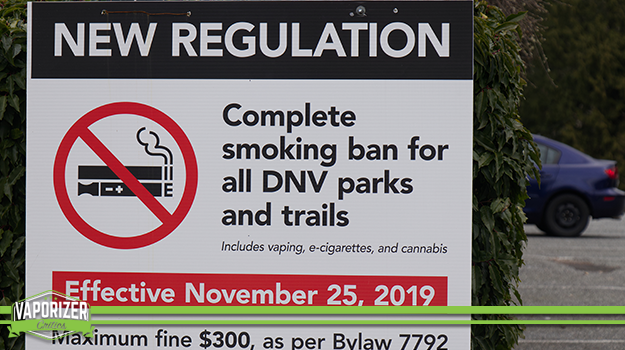
In Canada, the minimum legal age for vaping is 18 years old, although some provinces have set their age restriction at 19-21. This discrepancy can lead to confusion for both users and retailers, making it crucial to stay informed about the specific regulations in each province.
One province sets the legal age to buy vaping equipment at 21 years old.
- Prince Edward Island
These 3 provinces set the legal age for vaping at 19 years old:
- British Columbia
- Ontario
- Saskatchewan
The remaining Canadian provinces and territories set the legal age to purchase Vapes at 18 years old.
| Alberta | Manitoba | New Brunswick |
| Newfoundland and Labrador | Nova Scotia | Quebec |
| Northwest Territories | Nunavut | Yukon |
Retailers who sell to underage buyers in Canada may face penalties similar to those in the United States, including fines and the potential closure of their establishments. For users, awareness of the legal age in their province is essential to avoid potential consequences and ensure the responsible use of vaping products.
Europe Vaping Age Restrictions
In Europe, the legal age to purchase a vape varies between 16 and 20 years old, depending on the country. In Germany, the sale of e-cigarettes is prohibited to individuals under the age of 18. In most European countries, however, the minimum legal age for vaping is set at 18 years old.
European Union (EU) rules regarding e-cigarettes mandate that they must be labeled with health warnings specifying the presence of nicotine. Furthermore, the laws state that any form of cross-border advertising and promotion of e-cigarettes is strictly forbidden.
Turkey is among the most stringent countries in Europe on vaping. The purchase of vaping devices or e-liquids within the country is not possible, as no product has successfully received a license. However, using the devices and e-liquids you have carried along is permissible, provided that usage does not occur indoors or on public transportation. Although a complete ban on vaping isn’t in place, these restrictions make it somewhat challenging.
The following EU countries all allow the sale of vaping equipment to people 18 years or older:
| Spain | France | Italy |
| Germany | Greece | Portugal |
| Turkey | The Netherlands | Croatia |
| Czechia | Belgium | Bulgaria |
| Iceland | Norway | Sweden |
This wide range of legal vaping ages across Europe highlights the need for users and retailers to be aware of the specific regulations in their countries. Failing to adhere to these regulations can result in penalties for both parties, making it essential to stay informed and act responsibly.
United Kingdom (UK) Vaping Age Restrictions
In the United Kingdom, the minimum age requirement for purchasing a vape is 18 years old. While no explicit answer remains regarding the legal age for vaping in the UK, it is clear that the sale of e-cigarettes to minors is prohibited.
Furthermore, the use of e-cigarettes is restricted in enclosed public spaces in the UK. This means that vaping is not allowed in bars, restaurants, and other workplaces, protecting non-users from potential exposure to secondhand vapor.
Asia-Pacific Vaping Age Requirements
The Asia-Pacific region also has a variety of legal vaping ages, depending on the country. For example, the minimum age for vaping in South Korea is 19, while in China, it is 18. Australia and New Zealand both have a minimum vaping age of 18, and Japan sets the legal age at 20.
In some countries, such as Vietnam and Cambodia, the sale of e-cigarettes is permitted, but their use is not subject to regulation. By contrast, Thailand has enacted strict penalties for vaping, with imprisonment for up to 10 years as a potential consequence.
These varying regulations underscore the importance of understanding the legal vaping age in each country, as well as any additional restrictions that may apply.
Latin America Vaping Age Policies
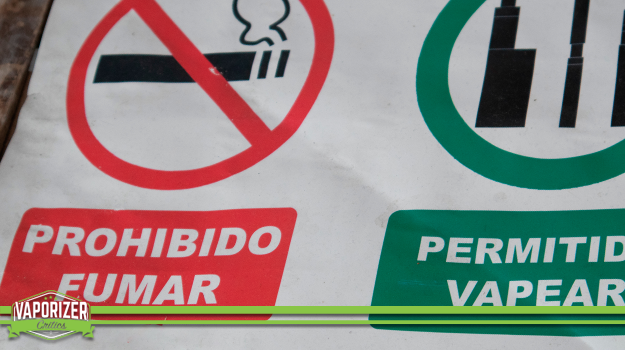
In Latin America, the legal vaping age varies, with countries like Chile, Costa Rica, Ecuador, Honduras, and Paraguay setting the minimum age at 18. However, some countries in the region, such as Argentina, Brazil, Panama, and Venezuela, have prohibited the sale of e-cigarettes altogether.
While e-cigarette regulations are often subject to local enforcement, it’s not uncommon to see vape shops in areas where they are technically prohibited. Across all territories, only five regions explicitly legalize and permit the sale of e-cigarettes: Chile, Ecuador, Honduras, Paraguay, and Costa Rica.
As with other regions, it is essential for both users and retailers in Latin America to be aware of the specific vaping age regulations in their country, as well as any additional restrictions that may apply. Staying informed will help ensure responsible use and avoid potential penalties.
Africa Vaping Age Regulations
In Africa, the legal vaping age varies by country, with South Africa & Egypt setting the minimum age at 18. Some countries, such as Tanzania, have prohibited the sale of e-cigarettes. Saudi Arabia, Kuwait, & UAE all recently removed vaping bans, and appear to be warming to the products.
In some African countries, vapes are regulated as tobacco products, which subjects them to the same laws and restrictions. In others, they are entirely unregulated, making their use a bit of a grey area legally.
As with other regions, understanding the specific vaping age regulations in African countries is crucial for users and retailers. Staying informed about these regulations will help ensure responsible use and compliance with local laws, avoiding potential penalties and negative consequences.
Vaping Products and Their Classification
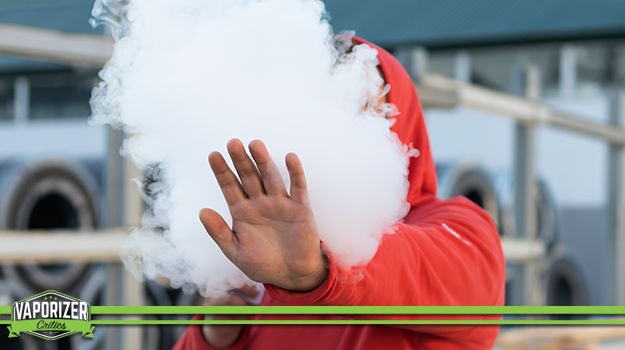
The U.S. Food and Drug Administration (FDA) classifies vaping products as tobacco products, which include e-cigarettes, vape batteries, and chargers. As a result, these products are subject to the same age laws as traditional tobacco products. This classification also extends to non-nicotine vaping products, which means that the legal age for purchasing and using these products is the same as for nicotine-containing vaping products.
Other items included in this classification include Dissolvable tobacco products, menthol, and other flavored tobacco, Hookah/Shisha, Nicotine Gels, and smokeless tobacco items like dip, snuff, snus, and chewing tobacco. When it comes to E-cigarettes, vaporizers, and vapes, the FDA considers these all (ENDS) Electronic Nicotine Delivery Systems.
While the FDA’s classification may seem broad, it is designed to regulate the sale and use of vaping products effectively. By treating non-nicotine vaping products in the same manner as nicotine-containing products, the FDA aims to ensure that all vaping products are used responsibly and within the confines of the law.
FDA’s Stance on Vaping Products
The FDA has taken a firm stance on vaping products by classifying them as tobacco products and imposing limitations on their sale and use. This classification encompasses e-cigarettes, e-liquids, vape pens, and other vaping materials. As a result, these products are subject to the same regulations as traditional tobacco products, such as age restrictions and advertising limitations.
The FDA’s position on vaping products has significant implications for both users and retailers. By classifying vaping products as tobacco products, the FDA aims to ensure that these products are used responsibly and in accordance with the law. This classification also helps protect young people from the potential risks associated with nicotine use.
Legal Age for Non-Nicotine Vaping Products
In the United States, the legal age for purchasing and using non-nicotine vaping products is the same as for nicotine-containing vaping products, which is 21 years old. This age requirement applies regardless of whether the vaping product contains nicotine or not, as the FDA classifies all vaping products as tobacco products.
This uniform age requirement ensures that all vaping products, including those without nicotine, are used responsibly and in accordance with the law. By imposing the same age restrictions on non-nicotine vaping products, the FDA aims to deter underage use and protect young people from potential health risks associated with vaping.
Vaping Regulations in Public Spaces
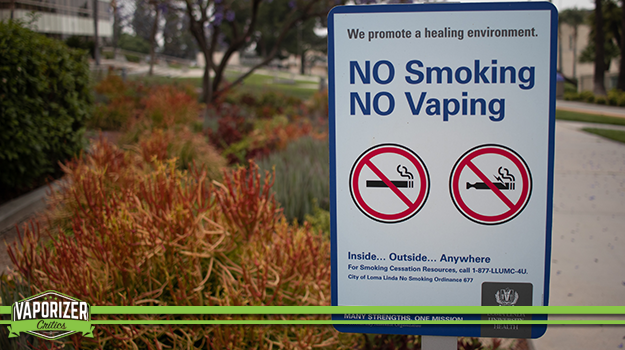
Vaping is generally prohibited in public indoor spaces in the United States and other countries, with certain exceptions. Some states and countries have enacted specific laws to restrict vaping in public spaces, such as enclosed workplaces, bars, and restaurants.
Outdoors, the regulations are largely dependent on where you are. Vaping outside on a public street is usually going to be completely legal. In a park controlled by the city? That is likely to be prohibited. Are you outdoors, but a privately owned concert venue or shopping mall? Probably prohibited. Use your best judgement and familiarize yourself with the probable ownership of the outdoor space.
These restrictions are designed to protect non-users from potential exposure to secondhand vapor and promote a smoke-free environment.
In addition to these public space restrictions, some states and countries have also implemented regulations on oil-based vape substances due to the outbreak of e-cigarette, or vaping, product use-associated lung injury (EVALI). These regulations aim to ensure the safety and quality of vaping products and protect users from potential health risks.
Public Space Vaping Bans in the United States
Across the United States, various states have implemented bans on vaping in public spaces. For example, in Rhode Island, the use of vapes is prohibited in locations where smoking is prohibited, with a few exceptions. In Utah, vaping is not allowed in any locations where smoking is prohibited, and it is also illegal to vape in vehicles with passengers under 15 years of age.
These vaping bans in public spaces are designed to protect non-users from potential exposure to secondhand vapor and maintain a smoke-free environment. It is essential for vapers to be aware of these restrictions in their state and adhere to them to avoid potential penalties and ensure responsible use.
International Vaping Regulations in Public Spaces
Internationally, vaping regulations in public spaces also vary by country. In 25 countries, including many in Europe, vaping is prohibited in enclosed public spaces, such as bars, restaurants, and other workplaces. These restrictions are designed to protect non-users from potential exposure to secondhand vapor and promote a smoke-free environment.
As with the United States, it is crucial for vapers to be aware of the specific vaping regulations in their country and adhere to them to avoid potential penalties and ensure responsible use. By staying informed about these regulations, vapers can contribute to a healthier and safer environment for everyone.
Substances Allowed in Vape Devices
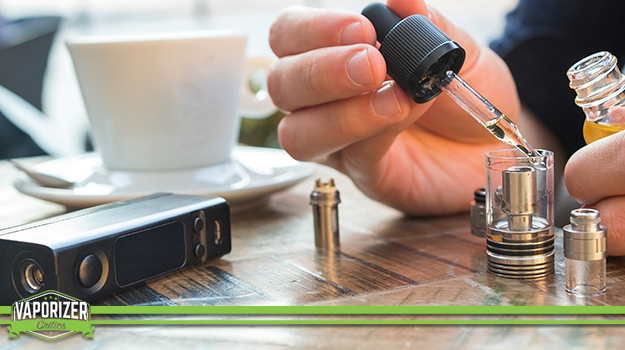
Substances that can be vaped include e-liquids with or without nicotine, cannabis, and CBD vapes. However, some states and countries have implemented regulations on oil-based vape substances due to the outbreak of EVALI. These regulations are designed to ensure the safety and quality of vaping products, as well as protect users from potential health risks associated with vaping.
While there is a range of substances that can be used in vape devices, it is essential for users to be aware of the specific regulations governing these substances in their area. This will help ensure responsible use and compliance with local laws, avoiding potential penalties and negative consequences.
Top 12 Types of Dab Bangers
Check out the most popular different types of bangers in the world
Regulations on Oil-Based Vape Substances
The FDA has implemented regulations for the manufacture, import, packaging, labeling, advertising, promotion, sale, and distribution of electronic nicotine delivery systems (ENDS) and their components, including oil-based vape substances. These regulations are intended to guarantee the safety and quality of these products, as well as protect users from potential health risks associated with vaping.
For retailers, these regulations require age verification for customers purchasing oil-based vape substances and prohibit the sale of such products to minors. Distributors must also ensure that oil-based vape substances are not distributed to retailers who fail to comply with age verification requirements and are not sold to minors.
By adhering to these regulations, retailers and distributors can help ensure responsible use of vaping products and compliance with the law.
Penalties and Enforcement of Vaping Age Laws
Retailers risk heavy fines, license issues, and even criminal charges for selling vaping products to minors, enforcing age regulations. Underage buyers could face consequences like driver’s license suspension or loss of student aid. These penalties, enforced by authorities, aim to encourage responsible vaping and protect youth from potential health risks associated with nicotine.
Penalties for Retailers
Retailers who sell vaping products to underage buyers may face significant penalties, including fines, license revocation or suspension, and potentially criminal charges. The exact penalties may vary by state but could include fines of up to $1,000 and revocation of the business license. These penalties serve as a deterrent for retailers who might consider selling vaping products to minors, ensuring that age regulations are enforced.
By imposing these penalties on retailers, authorities aim to protect young people from the potential risks associated with nicotine use and promote the responsible use of vaping products. Retailers must be vigilant in verifying the age of their customers and adhere to the laws governing the sale of vaping products to avoid facing these penalties.
Consequences for Underage Buyers
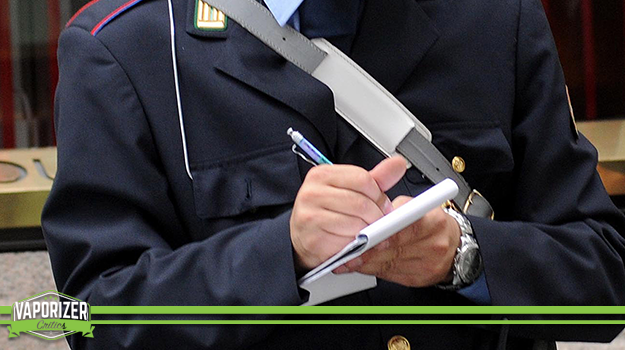
Underage buyers who purchase vaping products may face consequences such as suspension of their driver’s license or forfeiture of student financial aid. These consequences are designed to discourage young people from attempting to purchase vaping products and to encourage responsible use.
In addition to these consequences, using nicotine during adolescence can detrimentally impact the areas of the brain responsible for regulating attention, learning, mood, and impulse control. By enforcing these penalties and consequences, authorities aim to protect young people from these potential health risks and promote the responsible use of vaping products.
In general, what we have found is that most laws and restrictions are aimed at the retailers, and not the user. Your government and law enforcement is likely more concerned about stopping the sale of vaping products at the store level. However, any underage use can be used by LEOs as probable cause to cite, fine, or search for other infractions.
Summary
In conclusion, understanding the various vaping age regulations and the classification of vaping products is crucial to ensure responsible use and compliance with the law. With different legal ages and restrictions around the world, staying informed about the regulations in your area is essential. By adhering to these regulations, users, and retailers can contribute to a safer and healthier environment for everyone, and avoid potential penalties and negative consequences. So, the next time you think about vaping or selling a vaping product, make sure you’re well-versed in the laws and regulations that apply to you and vape responsibly.
Frequently Asked Questions
Can you vape if you’re 18 in the US?
18-year-olds are NOT allowed to buy vaping products in most states, and they should be aware of the different state & municipal regulations that may apply regarding their use. Be sure to follow your state’s laws to stay on the right side of the law. Most states have adopted the federal age requirement of 21 or higher for the sale of tobacco products and vaping products.
Do you have to be 18 to buy a vape?
Generally, you must be 21 years old to buy a vape, but some countries around the world have set the minimum age to as low as 16 and in other regions completely banned the sale no matter the age.
It is important to note that while it is potentially legal for someone under 21 to possess and use vaping products in your area, selling them to minors is strictly prohibited.
How to buy vapes without an ID?
Although purchasing vapes without an ID can be done, it’s important to consider that it is illegal and may have serious long-term legal consequences for both yourself – and the merchant trusting you with the sale.
Be sure to understand the risks involved before moving forward.
Davinci ARTIQ Vaporizer ❄️ 510 oil vape launch
Continue Reading Article » Davinci ARTIQ Vaporizer ❄️ 510 oil vape launch
Top 10 Best Vaporizer sales to score this 4/20 – 2023
Our hand-picked and curated guide to just the top 10 things we recommend you buy one (or more) of this 4/20 holiday season.
Continue Reading Article » Top 10 Best Vaporizer sales to score this 4/20 – 2023
Dab Banger Types 🔥 Top 12 different types of Bangers with photos
Continue Reading Article » Dab Banger Types 🔥 Top 12 different types of Bangers with photos

